#Immigration interviews
Explore tagged Tumblr posts
Text
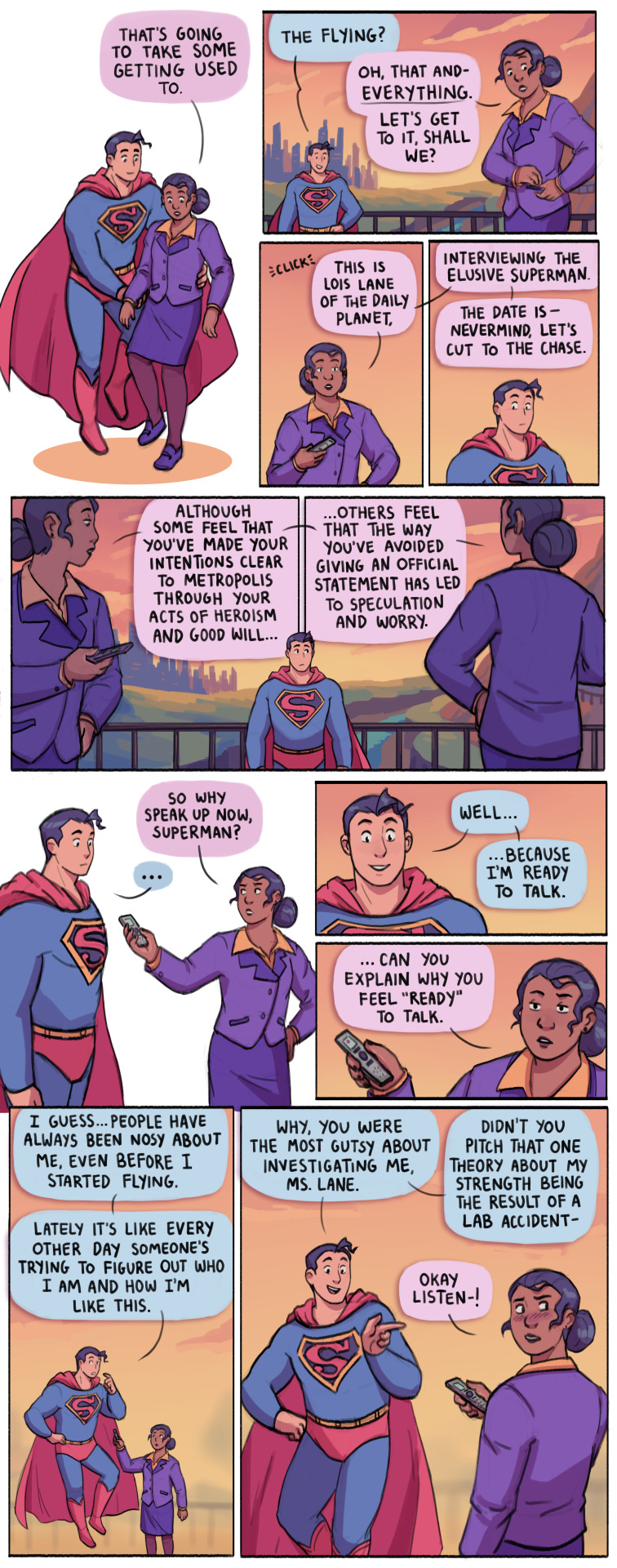
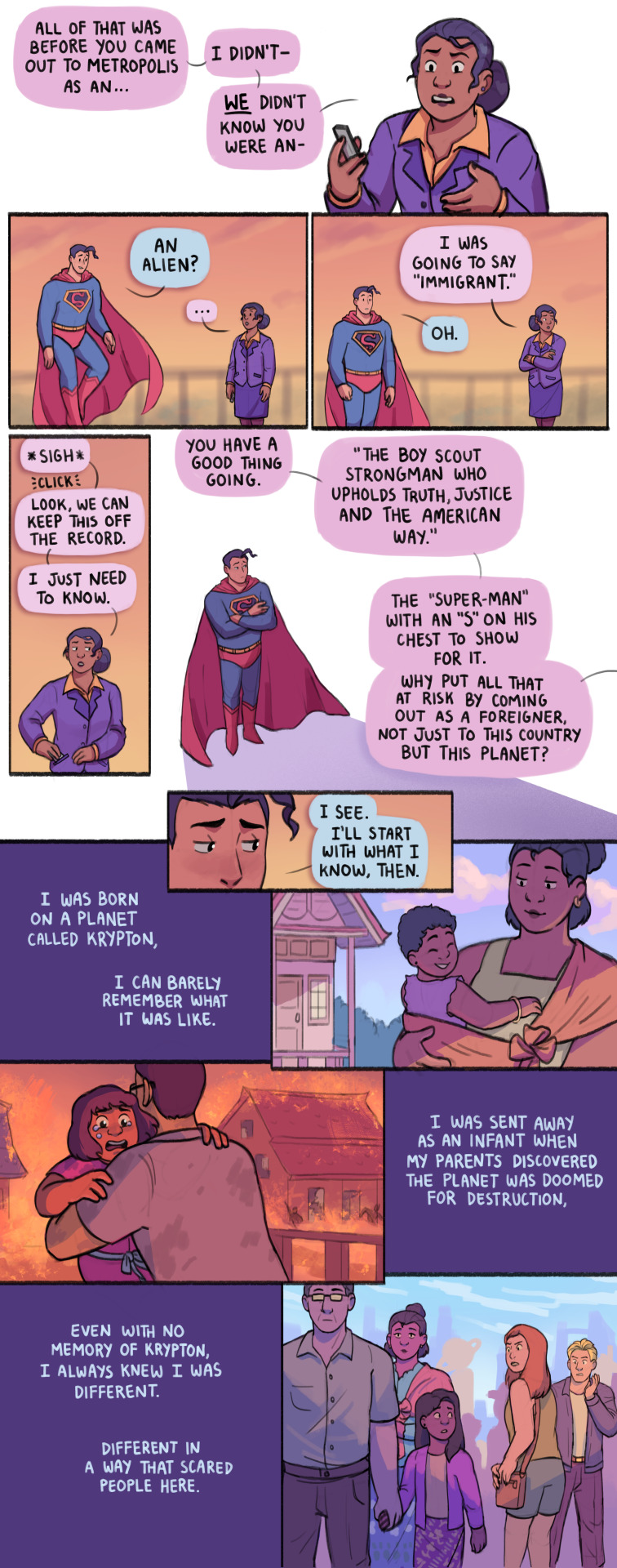

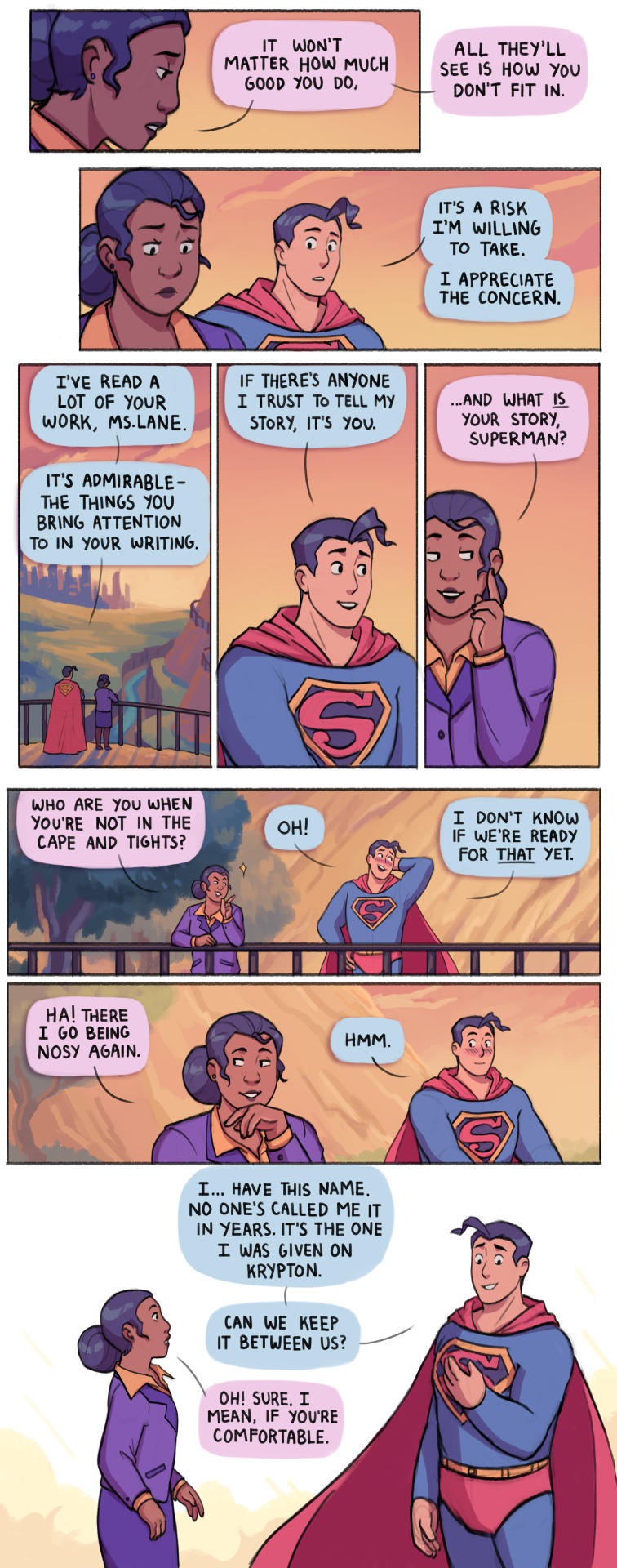
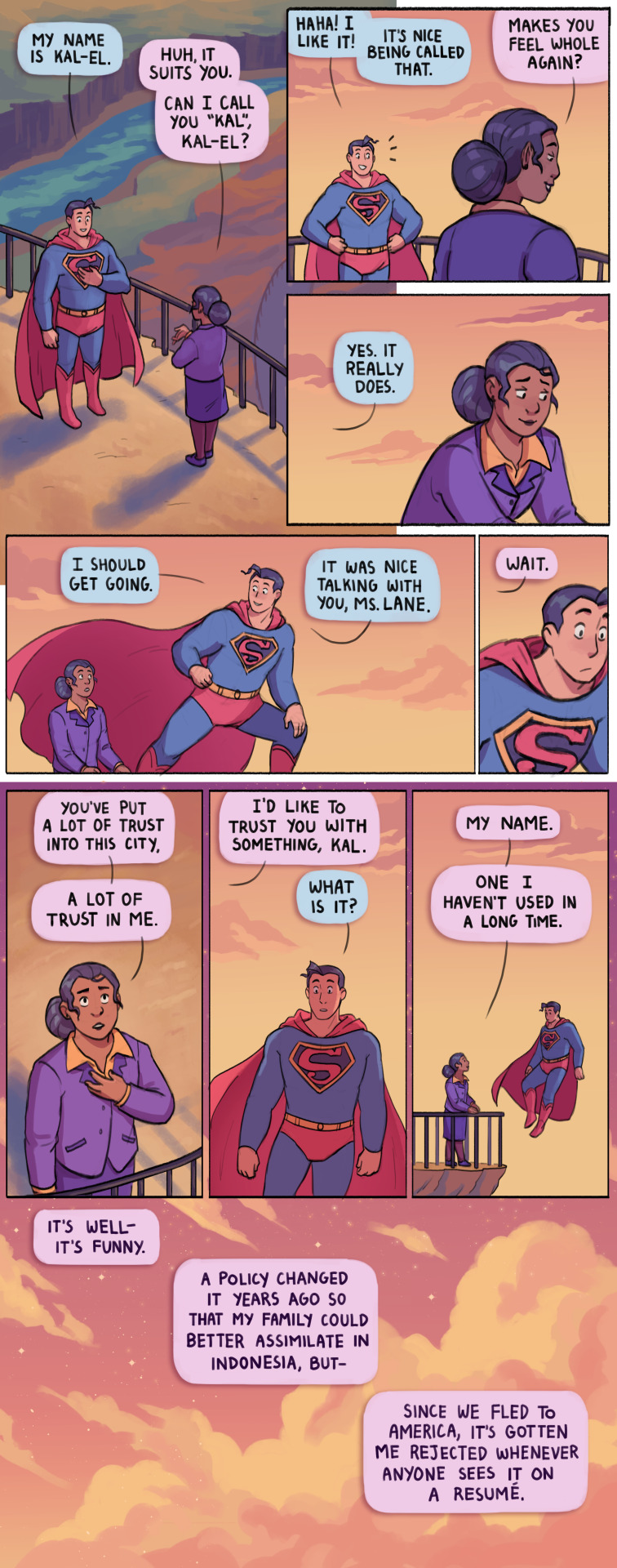
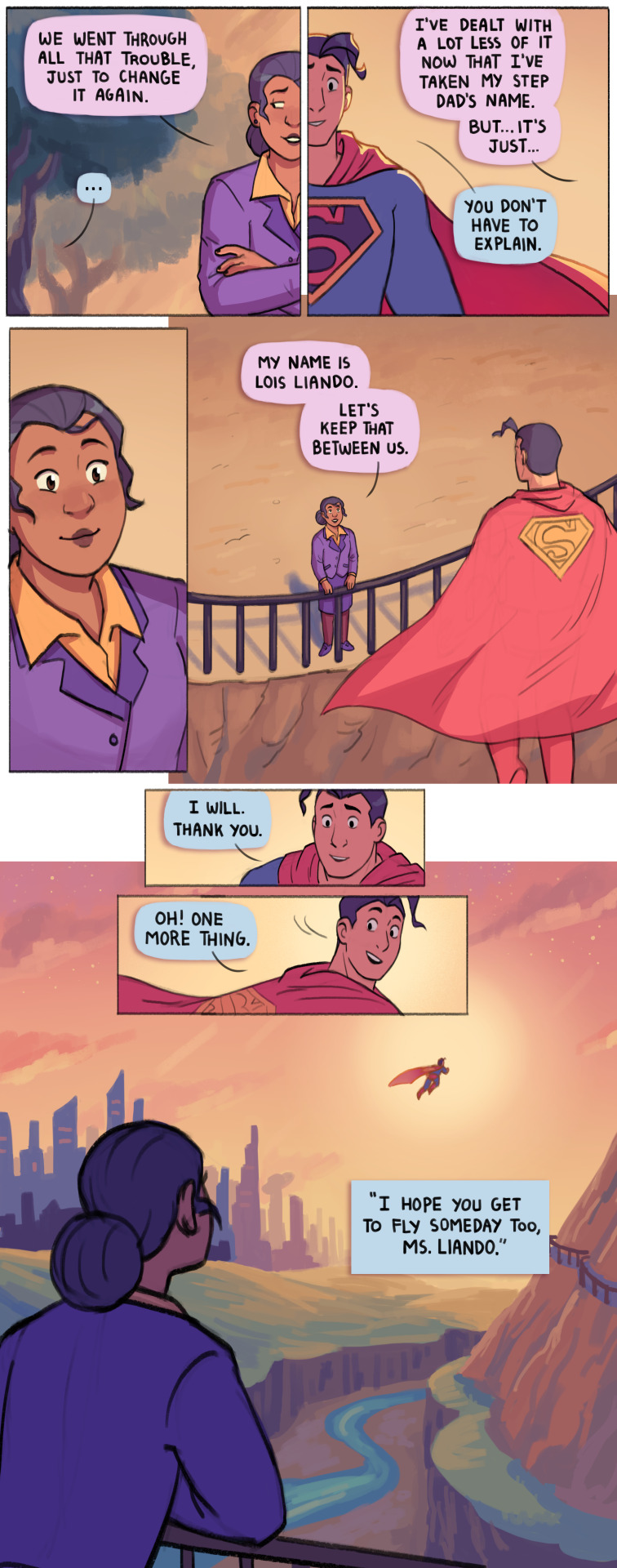
"Who Is Superman? A Private Interview with Lois Lane" a fancomic about hope and connection. I've had this story in mind for so long and I'm very excited to be able to share it at last. Thank you for reading, and happy Lunar New Year!
#superman#clark kent#lois lane#clois#dc comics#my art#fancomic#long post#my immigrant clois love story agenda is HERE#I have big feelings over the superman private interview canon event- how differently an asian lois would make that scene play out#jl remix
48K notes
·
View notes
Text
Upon entry into the United States, individuals must comply with the terms of their visa, such as maintaining lawful status, abiding by visa expiration dates, and adhering to any restrictions on employment or study. Depending on the type of visa, individuals may also have the option to apply for permanent residency, known as a green card, which grants them the right to live and work in the U.S. indefinitely. This process typically involves meeting additional eligibility criteria, such as sponsorship by a family member or employer, and navigating a separate application process with USCIS. Ultimately, for those aiming to become U.S. citizens, obtaining a green card is often a crucial step towards eligibility for naturalization, which requires meeting residency, language, and civics requirements, among others. Throughout each stage of the immigration process, applicants must carefully follow instructions, provide accurate information, and adhere to deadlines to maximize their chances of success.
#U.S. immigration process#Visa application procedures#Green card eligibility#Immigration laws and regulations#USCIS application process#Family-based immigration#Employment-based visas#Study visas for the U.S.#Naturalization requirements#Legal assistance for immigration#Port of entry procedures#Immigration status maintenance#Immigration background checks#Immigration interviews#Immigration documentation requirements
1 note
·
View note
Text
the vampire Armand sleeps with Daniel’s dick inside him and his fangs in Daniel’s neck and Daniel’s hand on his ass and his hand inside Daniel’s ribcage. he squeezes Daniel’s heart like a stress toy when he’s dreaming. I know this bc he told me good night everyone
#iwtv#armandaniel#the vampire armand#daniel molloy#devil’s minion#armand de nothing#armand de nolastname#interview with the vampire#amc iwtv#amc interview with the vampire#I am madly jealous of Daniel Molloy as I write this#me when#I mean probably sooner than I know? my husband’s immigration is in the final stages
223 notes
·
View notes
Text
#citizen#immigrants#politics#political#us politics#news#donald trump#billy on the street#american politics#president trump#elon musk#jd vance#law#us#united states#immigration#funny#comedy#interview#nowthis#america#us news#trump administration#republicans#elon#maga#republican#american#democrats#economy
81 notes
·
View notes
Text
registering my temporary move to sweden: oh you're norwegian? no prablem all done here's your swedish id :)
registering my move back to norway as a norwegian citizen who spent three years in the neighbouring country for studies: SCHEDULE A TIME FOR AN INTERVIEW AT OUR OFFICE. BRING ALL RELEVANT DOCUMENTS THAT PROVE YOU HAVE REASON TO STAY FOR LONGER THAN 6 MONTHS
#obviously im gonna be fine but what a hassle hahahaha#immigration interview tomorrowwwww#actual immigrants are the strongest people on earth.#in the end it turned out to be the correct thing to do to register my move to sweden since we needed the id number for school#but not having a norwegian address was SUCH a pain. i couldn't access so many systems#and i couldn't get my stupid trip to the stupid gender clinic covered
71 notes
·
View notes
Text

assorted armand/amadeo/andrei/arun. i cannot escape him…
#i lifted the line work straight from my stat notes hence the Texture#reading tva was a mistake but i’m inexplicably kind of into ginger armand…unexpected outcome#also they’re hitting me with the Eastern European Immigrant Beam so i had to draw andrei#the vampire armand#interview with the vampire#featuring just one of many assad zaman drawings that appear when i’m not paying attention to what im drawing#iwtv amc#armand iwtv#the vampire chronicles#armand de nothing#< i will NOT be tagging him armand de romanus you weirdos#my art#my art 2024
27 notes
·
View notes
Text
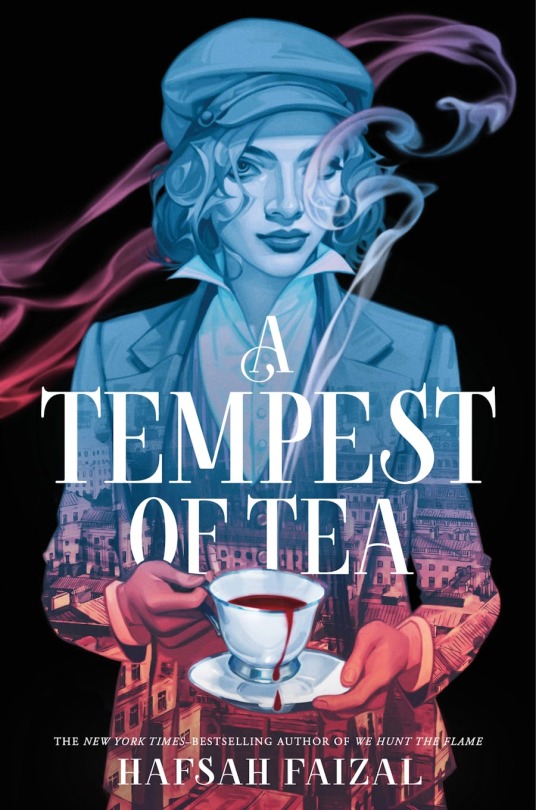
2024 reads / storygraph
A Tempest of Tea
first in a YA fantasy duology
follows a young immigrant woman in a fantasy Victorian city who runs a tearoom that doubles as an illegal bloodhouse for vampires at night
when their business is threatened, she gets a chance to save it by teaming up with her best friend, a rich girl with a talent for forgery, a vampire artist, and a mysterious city guard to do a heist to infiltrate high society and collect a logbook that may reveal the extent of the corruption in the city
fantasy city with a masked ruler, arthurian elements, themes of colonialism
#a tempest of tea#aroaessidhe 2024 reads#This has a really cool concept and worldbuilding and some fantastic characters!#I like the discussion of immigration and colonialism (I appreciate a story in this niche that’s not so white)#I like arthie and jin’s relationship and Arthie is a great character.#It definitely feels like the first half of a story - like is the arthurian stuff gonna come up more or is it just...#the mc is called arthie and has a gun she pulled out of a stone. Is there more to that lmao. it does end on a cliffhanger too.#The main thing I *didn't* like is that the middle kinda turns into…miscellaneous events purely to facilitate the characters being attracted#to each other. good for them I guess but i don’t care.#(I probably should have expected that based on the author’s other duology so that's on me I guess)#(the romances also feel on the older side of YA)#I also found that the audioboook narrator paused slightly too long between sentences.#I love having author interviews at the end of audiobooks!#which also directly called me out for guessing the obvious twist but not the multiple others directly after#(granted the obvious one I was like... genuinely confused whether it was supposed to be a twist bc I thought we already knew that)#also what's up with the coconut. lol. why that specifically
86 notes
·
View notes
Note
sorry if this comes off as a dumb question and/or sends you on an unnecessary side quest but ive kinda always wondered why in the hypmic universe everyone outside of bb has like the most kira kira ass kanji readings for their names 😭
y’know, i don’t think i’ve ever seen an interview about names in hypmic lol???? like i’ve seen bits and pieces of inspiration behind stuff but not why they’ve chosen to make the yamadas’ names easy to read and everyone else’s kira kira LOL
hypmic places meaning in the names they’ve chosen (eg aohitsugi 碧棺 has the coffin kanji, coffins are typically made of wood/metals, your hard cores aka mr. hardcore LOL) so i wouldn’t be surprised if it wasn’t spoken on in general as a thing to let fans think about themselves lol
#vee got an ask#i have crack theories (rei or nayuta are chinese immigrants/bb is the industry plant division LOL)#but ofc that’s founded in overthinking and not actual fact lol#idk if it’s a running joke but i do appreciate how samatoki points out that ichiro’s name is easy to remember#and irl it’s ppl trying to figure out how to read hypmic names lol (and shoutout to dice trying to stump gentaro with his name kanji lol)#i feel like kira kira names entered the jp mainstream roughly around the time hypmic got started i wonder if anyone thought to question it#esp since anime names in general tend to be punny lol like outside of bb that’s why i never questioned it they’re anime lol 😭😭😭#tons of magazine interviews never got tled and the next best place for that info would be the bb seiyuu run hypnamas#like they used to host the producers on the show occasionally lol like i learned from an og that the hyprice was a joke a producer made#and that joke came from one of the eeeeeeeaaaaarliest hypnamas lol#i think summaries exist for those streams i feel like i saw an archive for the twt who used to do them#they might not be the most comprehensive summaries tho lol
8 notes
·
View notes
Text
Levan Akin in the interview:
Sweden is in many ways similar to Georgia, very homogenous country and if you have dark hair and you look like me it's always gonna be like: oh, where are you actually from? Like: what's your origin? And there's a sort of casual racism still I would say is Sweden. I think that Europe, especially northern Europe is quite tricky in that sense. So, yeah, I mean I've always had that sense of being an outsider. If I'm in Sweden or if I'm here then it's always like: oh, yeah, he's georgian but not really or like: he's swedish but not really. You know I think that's a part of stories that I tell. My stories are often about people who go from one place to another, or, you know, can't fit in. Like in And Then We Danced. You know, And Then We Danced is about a boy who desperately wants to love his culture, to love his tradition but he's not allowed to because he's different. So I think that theme is something very close to me.
Source: tavisupleba (Instagram )
#interview with levan akin#levan akin#atwd interview#and then we danced#atwd#და ჩვენ ვიცეკვეთ#georgian movie#immigrants#outcast
16 notes
·
View notes
Text
Remind me to never make a post about Tr*mp on here again oh my GOD
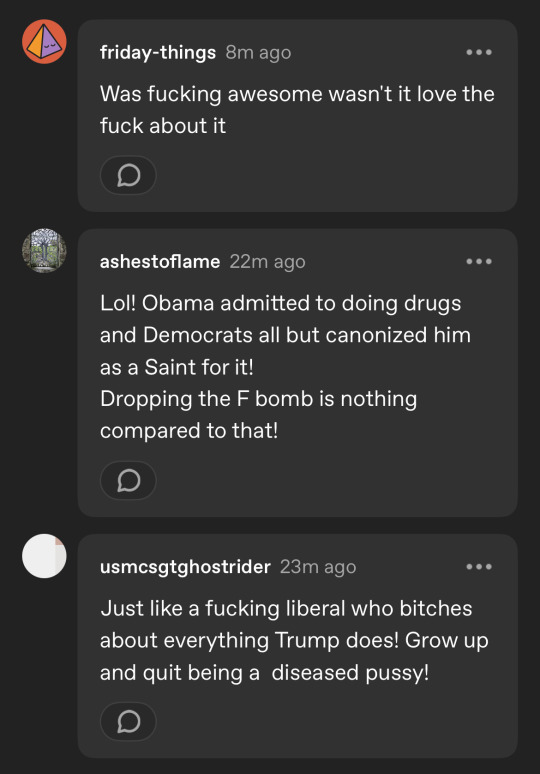
#this was about him saying fuck in an interview today#I have been laughing so goddamn hard#looked through their blogs too for a good laugh#one of them reblogged something saying that illegal immigrants stole the election this year.#anyway.#soleil.exe
4 notes
·
View notes
Text
#trump#international students#foreign students#immigrants#immigration#united states#social media vetting#student visa interviews
3 notes
·
View notes
Text
Austria mourns, and the far-right blames immigrants
This week’s Inside Austria explores how Austria is grappling with the school shooting in Graz — from calls for reform to far-right attempts to twist the narrative. Plus, what else made headlines across the country. Inside Austria is our weekly look at some of the news, talking points, and gossip in Austria that you might not have heard about. It’s published each Saturday, and members can receive…
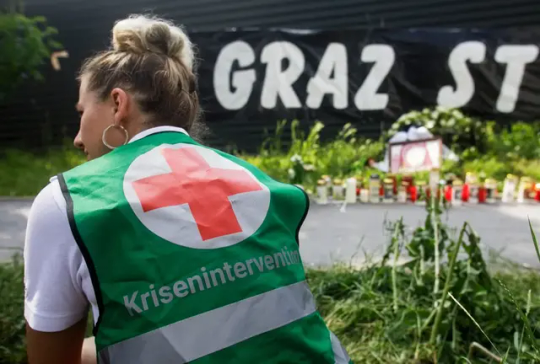
View On WordPress
#Accident#alert#Analysis:#annual#Austria#blames#Celebration#conflict#controversial#Crime#critical#Disaster#Education#entertainment#FarRight#immigrants#International#Interview#investigation#live#Local#mourns#national#Opinion#review#scandal#Sports#Technology#Update#urban
2 notes
·
View notes
Text
An Interview with Genoveva Dimova, Author of Foul Days
Genoveva is a Bulgarian archeologist living in Scotland and loves void cats, metal music, cheese, and Voice-y fast-paced books
Read here or on my substack

AC: Where did the inspiration for the witches’ shadows being linked to magic come from?
GD: Shadows are a common motif in Bulgarian folklore, and the idea that a person’s soul (or power, or essence) resides inside their shadow appears again and again. It is believed, for example, that stepping on someone’s shadow would bring the person ill health. If you’d like to get rid of an unwanted guest, a surefire way to do this is to sweep their shadow through the door. One of my favourite folkloric beliefs is the ritual of embedding, which is something that features prominently in Foul Days: the idea is that in order to make a structure, like a bridge or a wall, as solid and long lasting as possible, you need to embed someone in it, so that their spirit would protect it from evil. In some folk stories, the builders embed a living person, and in others—only the person’s shadow. It doesn’t matter which one of the two they choose, as a person without a shadow would grow ill and die within 40 days.
AC: The Foul Days are linked to the veil between worlds growing thin, which is present in Japanese, Irish, and Mexican traditions. Are there any cultural traditions in Bulgaria with similar ideas?
GD: I love this question! The short answer is—yes, absolutely. The long answer is that Foul Days is based around a real belief: in Bulgarian folklore, the Foul Days are the twelve days between Christmas and St John the Baptist’s Day, after the new year has been born but before it has been baptised, when the barriers between our world and the supernatural realm are thinnest, and therefore, evil spirits are free to roam the land. It was believed that during those twelve days, people should keep away from anything that would function as a doorway between worlds—all the mirrors in the house had to be covered, and washing had to be avoided, as water is a well-known method for transportation between realms. People also had to avoid going out after dark, hosting weddings or funerals, or conceiving, as any baby conceived during the Foul Days was sure to become a drunk or a rascal.
AC: Are there any writers writing Balkan speculative fiction you wanna give a shout-out to?
GD: This is a difficult question as very few Balkan authors have been translated into different languages, and their works are therefore inaccessible not only in the West, but within the Balkans themselves. There are more than a dozen languages spoken on this fairly small piece of land (Google tells me it’s roughly the same size as Texas), which means that we, too, have to rely on translations to read authors from other Balkan countries or cultures.
Anyway, with this caveat, here are some of my favourites:
For people who like literary fiction with a speculative twist, I’d recommend Time Shelter by Georgi Gospodinov. For a book that reads like a folk tale, Baba Yaga Laid an Egg by Dubravka Ugrešić. There is a new Croatian publishing house called Shtriga, which specialises in sharing speculative literature by Croatian authors with the rest of the world—they have a great selection of ebooks, some of which are free, so definitely check them out. The Historian by Elizabeth Kostova is a novel about vampires that takes us on a journey through the Balkans. Finally, Dark Woods, Deep Water by Jelena Dunato is a dark fantasy blending folklore and gothic horror in a setting inspired by the Eastern Adriatic, and I can’t recommend it enough.
When it comes to short stories, I loved the collections Mars by Asja Bakić and Impossibly Blue by Zdravka Evtimova, as well as the individual short stories 'The Language of Knives' by Haralambi Markov and 'The Loneliness of the Long-Distance Reporter' by Daniela Tomova.
AC: I will second the shout-out for Dark Woods, Deep Water by Jelena Dunato. A strong fantasy-horror debut that deserves way more love.
AC: Is the hair being connected to a witch's power also connected to Bulgarian folklore?
GD: Yes, definitely – like in many traditional societies, a woman’s hair was a way to communicate her status. A respectable unmarried woman would always wear her hair braided in public, and a woman who was married would not only braid hers, but also cover it. Female mythical creatures, on the other hand, like samodivas and yudas (forest spirits) or chumas (the personification of the plague) were often depicted with long, loose hair, indicating that they were wild and dangerous. There are a lot of rules surrounding women’s hair: in some parts of the country, cutting it with scissors is forbidden, and a flint has to be used instead. Hair that was cut was never disposed of lightly—it was collected, made into braids, and either burnt, hidden within the walls, or buried with the woman after her death. I’ve also heard of a belief that if a woman lets her hair grow too long, she’s tempting the evil spirits from the underworld to pull her down by it. Essentially, hair was seen as a symbol of the woman’s femininity, which, when uncontained (braided) can be dangerous to the social order.
AC: Growing up in the US, we so strongly associate the Berlin Wall with Germany and perhaps not how the Iron Curtain impacted the Balkans. When you sat down to write this book about Bulgarian folklore, was it a personal goal to connect it to Bulgaria's more recent past?
GD: I suppose, in a way. I grew up with my grandparents’ stories from the early years after the Berlin Wall was built, and for them, it was always a symbol of division, loss, and entrapment. It was essentially the physical manifestation of the Iron Curtain, and therefore, of the totalitarian regime. It was not only a physical barrier, but because of the strict censorship and the ban on anything too Western on the Eastern side of the Wall, it became an intellectual prison, too. I come from a family that had a lot of friction with the regime—one of my great grandfathers was sent to a working camp, another lost his job shortly after the communists came to power, for no other reason than the fact he was educated in Germany. My grandmother, whose mother and grandmother both went to university in France, and who spoke fluent French, was never allowed to travel close to the Bulgarian border—they were so scared she’d defect. It was her dream to see Paris, and she finally got to do it after the Wall fell. This was what I tried to do with the Wall in my book: recreate that feeling of being trapped, of having nowhere to go, no matter how bad things got. I thought it fit nicely with my folklore-inspired setting, because what is worse than having your city attacked by monsters every year than having your city attacked by monsters every year and having nowhere to escape.
AC: Kosara and Roksana's names almost mirror each other and contain almost all of the same letters. Was that an intentional way to signal that they are foils?
GD: The short answer is ��no’. The long answer is that the naming convention of Foul Days is a bit of an Easter Egg that would only register to Bulgarian readers. Most characters from Chernograd are given Bulgar names (the Bulgars were a tribe that settled on the territory of what is now Bulgaria in the 7th century, establishing the First Bulgarian Empire – prior to this, they were semi-nomadic, living in the steppes of Central Asia). During this period, Bulgaria was pagan, with the Bulgars known for being excellent horse riders and fearsome warriors—and, according to sources from neighbouring Byzantium, barbaric and bloodthirsty.
The characters from neighbouring Belograd have names associated with the Second Bulgarian Empire (established in the 12th century), which was Christian, deeply influenced by Byzantine culture, and in general, seen as prosperous and civilized.
Anyway, the issue with this is that while we know of plenty of male Bulgar names, since historical sources have recorded rulers and nobles, there are only a few female names preserved, mostly from a slightly later historical period: most contain an ‘r’ sound, many contain a ‘k’ sound, and they all end in a vowel. This is why the two names sound similar.
AC: Foul Days has zmey, kikimora, houses with feet, witches, and more. What was your favorite part of Balkan folklore to bring into the story/world?
GD: It has got to be the zmey! I'm a dragon girl at heart (like some people are horse girls, I suppose) and I think zmeys are so cool, especially with their dual nature of both friend/lover and foe. In Bulgarian folklore, zmeys are often presented as benevolent creatures, guarding villages against other, evil types of dragons, like halas and lamias. Despite their generally nice demeanour, they have the habit of taking on their human form of handsome, blond men with blue eyes, and using it to seduce women, marrying them, and taking them to their underworld kingdom. It is believed that when a zmey falls in love with a woman, she'll grow ill, pale, and sad, which is seen as a folkloric allegory for depression. The trick to avoiding marrying a zmey is checking your handsome blond lover's armpits, as it's believed that even in their human form, zmeys have tiny wings under them.
AC: Dragon Girls unite!
AC: There's all kinds of advice out there in regards to the writing process, but I've found that the best thing to do is experiment with a lot of authors' processes until you find a combination that works for you. What's your drafting process like?
GD: I agree with you completely, and I’m actually still in the process of experimentation to try to find a process that works best for me. My drafting process for Foul Days was fairly chaotic, especially since it started with drafting the book in Bulgarian before half-translating, half-rewriting it in English for the second draft! I don’t do that anymore, even if it’s an excellent way to see the text through “fresh eyes” – it’s way too time consuming. What I do nowadays is:
1) Come up with a pitch, in the style of a back cover blurb or a query letter, to make sure the fundamentals of the idea are there;
2) Note down a handful of scenes I’m excited to write – those are usually the midpoint, the ending, and a scattering of fun scenes in between. I use those as motivation to push myself to draft, since it’s not my favourite part of the process (that’s revision)
3) Start drafting!
4) Get to the end of the first act, pause, and revise until it makes for a good foundation on which to continue building the narrative;
5) Finish drafting!
6) Revise, revise revise;
7) Send the manuscript to a handful of trusted beta readers (usually 3-5)
8) Revise, revise, revise;
9) Send the manuscript over to my agent or editor;
10) Revise, revise, revise;
11) The end?
AC: Is it ever the end?
AC: Can we expect more dragon or shadow magic books in the future?
GD: Probably! I have a few ideas for books inspired by various other aspects of Bulgarian folklore, so I think I’m going to take a wee break from dragons and shadows, but given how much I love both concepts, I suspect they’ll continue to creep into my writing in the future.
AC: What's next on the horizon for you?
GD: So, Foul Days is completely done and out of my hair for the first time in six years, and I’m currently finishing up the revisions for the sequel, Monstrous Nights. Both are coming out within a few months of each other, Foul Days in June and Monstrous Nights in October, so I suspect I’ll be quite busy during that period. In the meantime, I’m working on a new story, which is likely going to be a standalone, set in a world inspired by the myths and legends of my hometown of Varna on the Black Sea coast – I don’t know if you find that where you’re from, but I always think coastal communities have their own separate culture, different from the in-landers, that comes with its own quirks, beliefs, and, of course, a tonne of sea monsters. So, I’m hoping that will become my next book—fingers crossed.
AC: Not sea monsters, for me, but aliens. And Big Foot. We love Big Foot in West Coast parts of the US.
AC: Some authors focus on food, others on clothes. What's your favorite way to worldbuild?
GD: You’re going to hate me for that answer – but it’s the vibes. Or, to use less wishy-washy terminology, it’s the atmosphere. I take a lot of inspiration from real-world places, and I like to stop and think about how they made me feel, and what I can do to translate this onto the page. As I’ve said above, for Foul Days, I really wanted to recreate the gritty, oppressive atmosphere of Cold War Eastern Europe, so I chose clothing, food, technology, celebrations, traditions—even weather—that in my mind, calls back to it. As an archaeologist, I’m very aware of how interconnected every element of a culture is with each other—how certain elements of clothing develop in tandem with access to certain foods, which is all related to trade, contact, technology level, and environment. So, when I worldbuild, I tend to start with a single high concept idea – like “fantasy Berlin Wall” – and attempt to find the elements that go together with that.
AC: Author as Brand gets thrown around a lot in some circles and not everyone likes it but it's impossible to stop the train at this point. What do you want your Brand to be?
GD: I’m in two minds about ‘author as a brand’, because I think it’s a phrase that gets used to mean two very different things. The first is, the brand of your writing, and I’m all for that – I’d like it if when readers see my name, they expect something based on Balkan folklore, with magic and witches, and probably monsters and murder, with flawed characters and lived-in settings. The second way I’ve seen ‘author as a brand’, used, however, is more like ‘author as an influencer’, and that is something I can’t get on board with, I’m afraid—it comes with an awful lot of expectations about you “curating” your online presence, and it also involves a lot of hard work and time, which is time that is ultimately spent not writing. So, I suppose what I’m saying is, I’d like my “brand” to come across through my writing, not through me as an individual.
AC: I couldn't agree more. Writers need time to actually write and edit and make the best books they possibly can. If they like social media, that's great, but if they don't, then it becomes a chore and perhaps a source of anxiety.
AC: Is Kosara a metal fan or does she listen to bubblegum pop?
GD: What a cool question! As someone who’s really into music (I am, in fact, a metal fan), I actually spend quite a bit of time coming up with what kind of music various characters would be into – so I can tell you with absolute certainty that Kosara would tell you she only listens to old-school punk, but if you go searching around her record collection, you’ll discover she’s more into pop rock.
AC: We talk a lot in writers spaces about how you have to read modern authors to be part of the conversation going on in our genres. What books is your book in conversation with?
GD: I love reading recent books - I truly believe we're currently in the golden age of fantasy, when so many different voices are finally getting the chance to add their contributions to the genre. Some of the books Foul Days is in conversation with are recent novels inspired by various Eastern European folklores, like Naomi Novik's Uprooted and Katherine Arden's The Bear and the Nightingale. These books showed me that Slavic folklore is something readers enjoy which, as silly as it sounds, I previously wasn't sure about. They inspired me to write my own take, shining light on the folklore of smaller, South Slavic Bulgaria, and I really enjoyed playing with similar tropes, but adding my own twists to them, inspired by my own culture. One of the things I noticed about that modern "Slavic fantasy" movement is that it often features a romantic subplot between a young woman and an older, supernatural being - so, I couldn't resist but to turn this trope on its head, making my book also include such a romance, except it occurred in the past, the supernatural being never redeemed himself, and the relationship ended badly. Another book inspired by Eastern Europe I recently read and loved was The Sins on Their Bones by Laura R. Samotin, which similarly looks at the fallout at the end of an abusive relationship and the way some people become monsters.
AC: The Sins Upon Their Bones was wonderful. I think it's the first book I ever read exploring Ashkenazi Jewish folklore and I've recommended it to all my friends at this point.
AC: Thank you so much for your time, Gen!

Where to buy:
Mysterious Galaxy (and get a signed book plate while supplies last)
Waterstones
Amazon
Kobo
Barnes and Noble
Macmillan
Preorder Monstrous Nights:
Amazon
Kobo
Macmillan

#balkan fantasy#bulgarian fantasy#bulgarian author#immigrant fantasy#genoveva dimova#foul days#adult fantasy#author interview
15 notes
·
View notes
Text
think i got an interview for pizza express let’s pray the manager isn’t a racist like the one in my old college’s town
#bugdoesntbite#💬🐛#mid interview she went on a rant about illegal immigrants i’m so glad she rejected me
4 notes
·
View notes
Text
youtube
How Fuckface von Clownstick's Executive Orders Impact Afghan Visas with Jon Stewart & Shawn VanDiver
Jon Stewart and Shawn VanDiver of #AfghanEvac break down how Fuckface von Clownstick's latest executive orders could threaten the visas promised to Afghan allies, the same brave individuals who risked everything to support US troops. They discuss the ways you can help those left behind and how we can come together to protect them.
#jon stewart#bearded jon#the jon stewart show#the daily show with jon stewart#the colbert report#the late show with stephen colbert#the problem with jon stewart#the weekly show with jon stewart#shawn vandiver#afghan interpreters#visas#asylum#immigration#executive orders#activism#interview#discussion#podcast#video
3 notes
·
View notes
Text
.
#I’d like to be clear that wanting to move to Canada is not a new thing for me ok#I have ever since my heart was stolen by Evelyn Brochu in 7th grade#I’ve eaten shitty campus poutine. I’ve watched at least 3 Xavier Dolan films. I’ve done the work#….that said#do current events MAYBE fuel that desire a bit??#am I battling the questionably-healthy urge to buy an entire cart of Canadian groceries despite the cost and environmental impacts??#have I fantasized in the last few days about excelling in a field enough to warrant a professional interview and then responding in perfec#t québécois french that I intentionally chose to immigrate due to the disrespect and hatred showed to me by my own country??#am I MAYBE POSSIBLY relapsing into old behavior patterns where I pursue unrealistically ambitious goals fueled entirely by rage and spite???#…thats for the people to decide.#I am going to take a nap now#rant#personal#politics#disc horse
2 notes
·
View notes